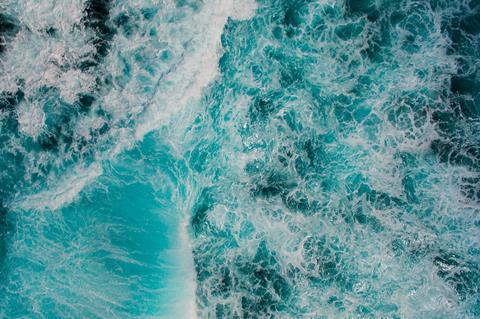The ocean absorbs about a quarter of annual carbon dioxide emissions. One mechanism that facilitates this is known as the biological carbon pump. This process starts with the photosynthesis of tiny microscopic algae, phytoplankton, floating in the sunlit upper layers of the ocean.

Professor Dr Susanne Neuer and her team study the Biological Carbon Pump, focusing particularly on the role of plankton organisms in the formation of sinking particles, both in the laboratory and at sea. Since 2004, she has been a Professor of Marine Biogeochemistry at Arizona State University in Tempe, USA. Since 2022, she is also the founding director of the new School of Ocean Futures.
For her contributions, she has been awarded the 31st Excellence Professorship of the Prof. Dr Werner Petersen Foundation, which includes €20,000 in funding and a six-week research stay at the GEOMAR Helmholtz Centre for Ocean Research Kiel.
Outstanding scientist
Dr h.c. Klaus Wichmann, Chair of the Prof. Dr Werner Petersen Foundation, said: “On behalf of the Foundation, I am very pleased to award another outstanding scientist with an Excellence Professorship today. Since its inception in 2009, the Excellence Initiative has been an indispensable part of our mission to promote scientific excellence in Schleswig-Holstein and to intensify international cooperation. It is an honour for us to continue to support this and I hope that this initiative will set an example for others to follow.”
Professor Dr Katja Matthes, Director of GEOMAR, congratulated the awardee: “I am delighted that we can honour Susanne Neuer with this well-deserved award. With her outstanding research on the biological carbon pump, she has made an invaluable contribution to our understanding of the processes that influence our climate. Professor Neuer has excelled not only as a scientist but also as a mentor. She is a dedicated advocate for the advancement of women in science, having played leading roles with the Association for Women in Science and at Arizona State University. Her expertise and extraordinary achievements have made her a leading voice internationally. We are proud to welcome her to GEOMAR today and look forward to the inspiring contributions she will make during her stay.”
Leading role
In her laudatio, Professor Dr Anja Engel, Head of the Marine Biogeochemistry Research Division at GEOMAR, emphasised the importance of the awardee’s research: “Professor Neuer plays a leading and internationally visible role in marine biogeochemistry, the carbon cycle and particle export. Her highly acclaimed work has contributed significantly to our current understanding of the biological carbon pump in the ocean. Her analyses of ocean time series have laid the foundation for comparative studies of the efficiency of this central mechanism in the carbon cycle.”
READ MORE: Hidden trails of marine snow can affect how the ocean stores carbon
READ MORE: Microbe dietary preferences influence the effectiveness of carbon sequestration in the deep ocean
In her keynote lecture, Susanne Neuer discussed the significance of the Biological Carbon Pump for our planet’s climate. A fascinating aspect of this mechanism is the formation of so-called marine snow—sticky aggregates of phytoplankton, bacteria, and other organic matter held together by larger particles such as dust.
These aggregates can grow large enough to be visible to the naked eye and form the basis for the transport of carbon into the deep ocean. Planktonic animals such as krill and copepods also contribute to carbon export by releasing phytoplankton particles into the ocean’s twilight zone, an area of near darkness where the light barely penetrates.
Long-term storage
“The processes initiated by phytoplankton and bacteria in the upper ocean layers of the ocean are a fundamental component of the long-term storage of CO2 and thus play a critical role in the context of climate change,” explained Prof. Neuer. “In the deep ocean, there is a fascinating interplay between microscopic cells that not only remove carbon from the atmosphere, but also sustain life throughout the ocean,” said Neuer. “The next time you look at the ocean, think of all the microscopic life in the water and all that it does for the well-being of our planet.”
Kiel is not new territory for Susanne Neuer: some 40 years ago, she began her training as a marine scientist here at the former Institut für Meeresforschung (IfM), before moving on to the USA for further studies. This is not the first time she has returned to Kiel to talk about her research either. At the invitation of GEOMAR’s Women’s Executive Board, she gave a talk in 2016 as part of the Marie Tharp Lectures, discussing career issues with young female scientists.
“I am very honoured to receive the Excellence Professorship,” she says, “it will allow me to expand my collaboration with GEOMAR and especially with Prof. Dr Anja Engel and to develop synergies in our research on the biology of the global carbon cycle.”
She is particularly looking forward to the exchange with young scientists at GEOMAR. Susanne Neuer says: “It is important that the next generation receives special support in their careers so that they can not only be successful, but also make a sustainable contribution to solving environmental problems.”







No comments yet